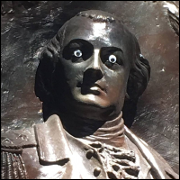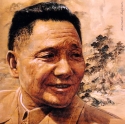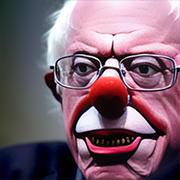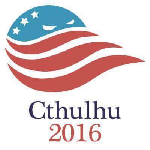|
I like how it says that the Compromise of 1850 "postponed the Civil War for 10 years" without saying what exactly that compromise was.
|
|
|
|

|
| # ? May 9, 2024 21:04 |
|
Platystemon posted:TR was the greatest president the U.S. ever had (at least in timelines where Frémont didn’t win in 1856). So no Eternal President Debs for you?
|
|
|
|
GreyjoyBastard posted:When your company's sainted founder is literally named James Crow, you have to choose between running away from that awkward association or donning it wholeheartedly like a pointy white hat. I had to look that up and apparently Jim Crow and James C. Crow, distiller, are totally unrelated but surfaced within five years of each other. Weird.
|
|
|
|
Aliquid posted:I had to look that up and apparently Jim Crow and James C. Crow, distiller, are totally unrelated but surfaced within five years of each other. Weird. I was scratching my head wondering how a distiller might come to be named after a stock comedy character. That answers it.
|
|
|
|
Victoria Woodhull owned* and I would protest vote for her anytime *besides the eugenics stuff she got into in her latter years Mrs. Satan posted:Now, I say, that that common public is entitled to all the benefits
|
|
|
|
I voted Grant as I feel he's the only choice that will keep the South from rising up again. They can get all the proto-socialism they want after the specter of the Confederacy is smashed and we've completed the 1870s version of De-Nazification. It's too dangerous to let the embers of rebellion fester.
|
|
|
|
Thank you for voting. After a long and hard-fought campaign, Ulysses S. Grant has narrowly won re-election. To his embarrassment, however, Grant will have to contend with a hostile Liberal Republican and Prohibitionist Congress. Grant can only hope that his colleague, Henry Wilson can stem the tide of discontent over the rampant corruption in the Administration. MOST POPULAR TICKET: Ulysses S. Grant / Henry Wilson (Republican) - 41 votes (40.2%) James Black / John Russell (Prohibition) - 33 votes (32.4%) Horace Greenley / Benjamin Gratz Brown (Liberal Republican / Democratic) - 23 votes (22.5%) Charles O’Conor / John Quincy Adams II (Bourbon Democratic) - 5 votes (4.9%) TOTAL: 102 votes
|
|
|
|
ELECTION OF 1876 Click here to vote in the Election of 1876! Click here to vote in the Election of 1876!   Background: Following his election in 1872, Grant was at a career high. Though most Americans remained deeply concerned about the allegations of corruption surrounding his administration, Grant’s popularity proved sufficient to quell any discontent. Horace Greenley was dead after having been driven mad by an electoral landslide. Grant’s allies controlled both the Senate and House. Even the South, which had waged a ferocious campaign against Grant, seemed to be accepting his administration. If the situation persisted, Grant seemed likely to pursue an unprecedented third-term. Unfortunately, Grant would soon be overtaken by economic calamity. Over the past four years, the United States had enjoyed almost unprecedented economic expansion. Driven by major reconstruction projects across the South and a craze in railroad investment, stock prices across the country reached a fever pitch. As prices rose, investors made riskier and riskier decisions believing that they would soon make massive profits. Despite offering seemingly no returns on investment, docks, factories, and train stations popped up around the country. Worsening matters, Grant suddenly decreased the country’s money supply by putting the United States on a de facto gold standard. As investors tried to realize their profits, the money they needed suddenly became scarce or (more frequently) non-existent. In September 1873, Jay Cooke & Company, the cornerstone of the American banking establishment, declared bankruptcy. The failure triggered the collapse of Livermore, Clews and Company, the second-largest marketer of federal bonds in the country. As bank after bank closed, the New York Stock Exchange was forced to shut down. By November, the crisis had spread nationwide as 55 of the country’s largest railroad companies failed. Construction, which had served as the backbone of the economy, plummeted. Wages were cut, real estate values shrank, and corporate profits vanished. Meanwhile,food prices plummeted, forcing most of the country’s farmers to survive on subsistence level consumption. Violent strikes by unemployed workers were reportedly happening on a daily basis. Alcohol consumption skyrocketed. The United States, as well as the entire world economy, would remain trapped in a deep recession for almost a decade. As many Americans were reduced to abject poverty, reports continued to swirl about rampant corruption within the Grant Administration. Despite promises to clean up his administration, Grant had unceremoniously reappointed all his former cabinet officials. These officials immediately set to work stealing as much money as they could manage. The Treasury was embroiled in a massive scandal wherein officials had exploited delinquent accounts to make hundreds of thousands of dollars. The Secretary of the Interior was discovered taking bribes for fraudulent land claims while pocketing salaries of imaginary employees. The Justice Department openly accepted bribes in return for declining to prosecute certain trial cases. When the Whiskey Ring scandal hit, it seemed probable that even the White House was involved. Allegations emerged that Grant had profited from bribes and used those bribes to fund his 1872 re-election campaign. Though the President was eventually cleared, the events forced Grant into an early retirement. With the country roiling from four years of crisis, the Republicans would need an almost perfect candidate to avoid electoral disaster. Thankfully, they found their man in Rutherford B. Hayes. Rutherford B. Hayes was the favorite son of the all-important swing state of Ohio. He was a war hero and had extensive executive experience. He had a reputation for effective, bipartisan governance. Even better, he had railed against the spoils system and had a reputation for integrity that outshone even Grant. Though the Republicans would still face an up-hill campaign, Hayes would at least blunt the worst of the chaos. Seeing an opportunity for relevance, the Democrats nominated their strongest candidate in a decade: Samuel Jones Tilden. A New York reformer who had been instrumental in smashing the infamous Tweed Ring and an advocate of the poor, Tilden’s candidacy pointed directly at the Republican’s weaknesses. While Republicans had made themselves fat through graft and corruption, Tilden would restore integrity to the country. REPUBLICAN PARTY NOMINEES:  Presidential Nominee: Rutherford B. Hayes
 Vice-Presidential Nominee: William A. Wheeler
DEMOCRATIC PARTY NOMINEES:  Presidential Nominee: Samuel J. Tilden
 Vice-Presidential Nominee: Thomas A. Hendricks
GREENBACK PARTY NOMINEES:  Presidential Nominee: Peter Cooper
 Vice-Presidential Nominee: Samuel Fenton Cary
PROHIBITION PARTY NOMINEES:  Presidential Nominee: Green Clay Smith
 Vice-Presidential Nominee: Gideon T. Stewart
QuoProQuid has issued a correction as of 21:24 on May 1, 2016 |
|
|
|
The historical Hayes sold out Reconstruction to win the election so gently caress him. Not really sure who else to vote for, though.
|
|
|
|
Empress Theonora posted:The historical Hayes sold out Reconstruction to win the election so gently caress him. Have you considered the totally-not-racist, Let's-forget-the-Civil-War-ever-happened, Democratic Party? Or maybe you could go Prohibition if want an egalitarian Christian theocracy? The Greenbacks are okay on their single issue.
|
|
|
|
QuoProQuid posted:
 Look at that beard. Look at that beard. I'm all for Fiat Currency and the general attitudes of the Greenbacks, but I also really like the "gently caress the class divide" attitude of the prohibitionists. ...Not the moralism, though, and that's a pretty central thing. I guess this is a choice between people that are pretty alright all around, or some guys that are hella cool in some ways but pretty bad in others. I think the goony facial hair might be a tie-breaker for me
|
|
|
|
I can't decide. I am torn between Green Clay Smith's social ideas and Peter Cooper's fabulous beard. I guess Cooper only supports greenbacks because he just knows how awesome he would look on a bill.
|
|
|
|
Going Greenbacks. I may just be sniffing (Cooper-made) glue, but this is a man who not only wants to rebuild our shattered economy from the bottom up, not only has a workable plan on how to do it, but also plans on doing it without establishing a theocracy. Plus, he and his VP also have the best hair out of all the candidates, and if that's not trustworthy, I don't know what is.
|
|
|
|
This is the first slate of candidates where I have no clue who I want to vote for after finishing the post. None of them seem very good.
|
|
|
|
full communism now and a book of free rolling papers for every citizen? green's got my vote
|
|
|
|
Lord Cyrahzax posted:Plus, he and his VP also have the best hair out of all the candidates, and if that's not trustworthy, I don't know what is. Their combined haircut/beard combo would probably be utterly awe inspiring.
|
|
|
|
Ibogaine posted:I guess Cooper only supports greenbacks because he just knows how awesome he would look on a bill. Here's a preview of what that might look like 
|
|
|
|
If elected, Peter Cooper would be the oldest President in American history. At 85, he's already the oldest person to ever be nominated for election. Takanago posted:Here's a preview of what that might look like Cooper had a really nice signature.
|
|
|
|
gently caress the gold standard.
|
|
|
|
that's an interesting set of people. aside from his beard, is cooper for the greenbacks wearing glasses with two extra panes for his peripheral vision? drat. i really don't know what to think, i might just vote greenback since their platform is kind of fun and they have the Look edit: voted greenback and i cant quite tell what to make of the excellent political cartoon featured on the voting page: i guess it's saying hard and soft money politicians are just going to steal your money anyway, featuring a much more interesting depiction of horseshoe theory than the usual? oystertoadfish has issued a correction as of 21:46 on May 1, 2016 |
|
|
|
Man, I want to vote for Smith. I really do. But his Ultra-Religious standpoints and (perhaps most importantly) prohibitionist leanings just kill the hype for me. Guess I'll vote for the home team and go with Hayes. I went to his house once when I was a kid, so I feel a bit of a connection there.
|
|
|
|
I've decided to vote for the Greenbacks solely on the basis of Cooper's incredible beard. And I mean solely; I haven't even read his platform.
|
|
|
|
Rutherford B Hayes posted:
Rutherford B(ernie Sanders) Hayes? Nckdictator has issued a correction as of 21:57 on May 1, 2016 |
|
|
|
oystertoadfish posted:that's an interesting set of people. aside from his beard, is cooper for the greenbacks wearing glasses with two extra panes for his peripheral vision? drat. The cartoon is satirizing the Democratic Party's approach to monetary policy. During the Convention, the biggest issue for debate was whether to endorse hard-money policy, the gold standard, or soft-money policy, greenbacks. The Democratic "solution" was to nominate a hard-money advocate, Tilden, and add a soft-money advocate as his running mate, Hendricks. The title of the cartoon refers to Tilden's convoluted attempt to make the ticket acceptable to both factions. In his acceptance speech, he promised to repeal the fixed date on specie payments on Civil War bonds, which the soft-money advocates saw as a necessary first step in inflating the currency but would really have little impact by itself. As you can imagine, the race got really confusing as Tilden, a hard-money advocate, started giving speeches that seemed to vaguely endorse soft-money policies while Hendricks, a soft money advocate, was forced to explain the virtues of his running mate's hard-money views. The more either candidate spoke on the issue, the more confused their stance became.
|
|
|
|
Takanago posted:Here's a preview of what that might look like Alright, I'm sold! Cooper/Cary in '76! edit: Incidentally, I just checked out his wikipedia page: https://en.wikipedia.org/wiki/Peter_Cooper Turns out, he was pretty cool. quote:Cooper's efforts led to the formation of the Board of Indian Commissioners, which oversaw Ulysses S. Grant's Peace Policy. Between 1870 and 1875, Cooper sponsored Indian delegations to Washington, D.C., New York City, and other Eastern cities. These delegations met with Indian rights advocates and addressed the public on United States Indian policy. Speakers included: Red Cloud, Little Raven, and Alfred B. Meacham and a delegation of Modoc and Klamath Indians. And he had been active in the anti slavery movement and supported free schools, as well. Ibogaine has issued a correction as of 22:39 on May 1, 2016 |
|
|
|
The Democratic ticket posted:He dislikes Reconstruction and voted against the Thirteenth, Fourteenth, and Fifteenth Amendments gently caress that. The Prohibition ticket posted:Believing social class to be an affront to God, Smith wants to eradicate all special privileges on the basis of race, creed, property, or sex and institute equal suffrage for all. Sounds goo— quote:He will also institute laws requiring all citizens to recognize the Christian Sabbath and distribute free bibles as a guide for public morality. gently caress. His running mate’s “It would not make sense for the Prohibition Party to focus on anything but the prohibition of alcohol until they are able to achieve their goal” is the relish on a poo poo sandwich. The Pro Party was tempting in earlier elections, but they’ve gone off the rails now. The Greenback Party has taken the mantle of “single issue party that’s shockingly progressive on other issues”, and their single issue is a better one anyway. Voting for the literal neckbeard.
|
|
|
|
QuoProQuid posted:Unfortunately, Grant would soon be overtaken by economic calamity.  Oh, if only you had elected James Black! Bimetallism would have solved your economic woes, Black's firm anticorruption stance would have prevented the profligate fraud and crime of the Grant administration, and incremental restrictions on alcohol would have slowly weaned the nation of its reliance on the Devil's Juice. Plus, y'know, universal enfranchisement. That too. Oh well, I guess we'll be stuck with the crazy fringe prohibitionist movement from now on. Well done, Goonmerica. You get the nation you deserve.
|
|
|
|
Map of the United State of Goonmerica: Platystemon posted:gently caress. It's probably worth keeping in mind that, at this point, the radicals are Christian theocrats. The abolitionism movement was run by radical Christian activists. The women's suffrage movement is spearheaded by Christian reformers. Temperance is seen as a Christian virtue. As we get closer to Bryan, we'll see increasing amounts of religious rhetoric. QuoProQuid has issued a correction as of 01:38 on May 2, 2016 |
|
|
|
None of the other candidates care about reconstruction, so I'm voting for Hayes who in the past has supported the rights of blacks. May this be yet another fair election in our wonderful Goon States of America.
|
|
|
|
Greenbacks are the only good choice here, given that Hayes ended Reconstruction, the Democrats still refuse to admit they're the party of the traitors and the Prohibitionists want to get rid of booze.
|
|
|
|
The prohibitionists are great, because we get to see the goon kneejerk "full communism now" response put up against the goon kneejerk "gently caress religion" response. 
|
|
|
|
Octatonic posted:The prohibitionists are great, because we get to see the goon kneejerk "full communism now" response put up against the goon kneejerk "gently caress religion" response.
|
|
|
|
QuoProQuid posted:Map of the United State of Goonmerica: Not if the secessionist Adams County has its way! 
|
|
|
|
Fiat money owns, vote Greenback
|
|
|
|
What this thread has taught me was that Grant was one of the shittiest US Presidents in a long line of US Presidents. I can't believe you assholes voted this crook in for a second term.
|
|
|
|
GlyphGryph posted:What this thread has taught me was that Grant was one of the shittiest US Presidents in a long line of US Presidents. I can't believe you assholes voted this crook in for a second term. Nah Grant was a pretty cool dude in all honesty. Also the shittest president was Buchanan.
|
|
|
|
Grant was great. The people he surrounded himself with were lovely, but not quite as lovely as all the people running against him.
|
|
|
|
GlyphGryph posted:What this thread has taught me was that Grant was one of the shittiest US Presidents in a long line of US Presidents. I can't believe you assholes voted this crook in for a second term. i'm sorry i must be reading something wrong because US grant is actually a top 5 president in a list that includes william henry harrison
|
|
|
|
GlyphGryph posted:What this thread has taught me was that Grant was one of the shittiest US Presidents in a long line of US Presidents. I can't believe you assholes voted this crook in for a second term. Grant wasn't great and his administration was incredibly corrupt, but he was also deadly serious about Reconstruction and maintaining the Federal occupation of the South. For that alone he's probably in the upper-tier of American Presidents, at least when it comes to race relations.
|
|
|
|

|
| # ? May 9, 2024 21:04 |
|
Platystemon posted:Voting for the literal neckbeard. Given the candidates background, I think the traditional form of this expression is "Cooper!" *slams telegraph*
|
|
|






















